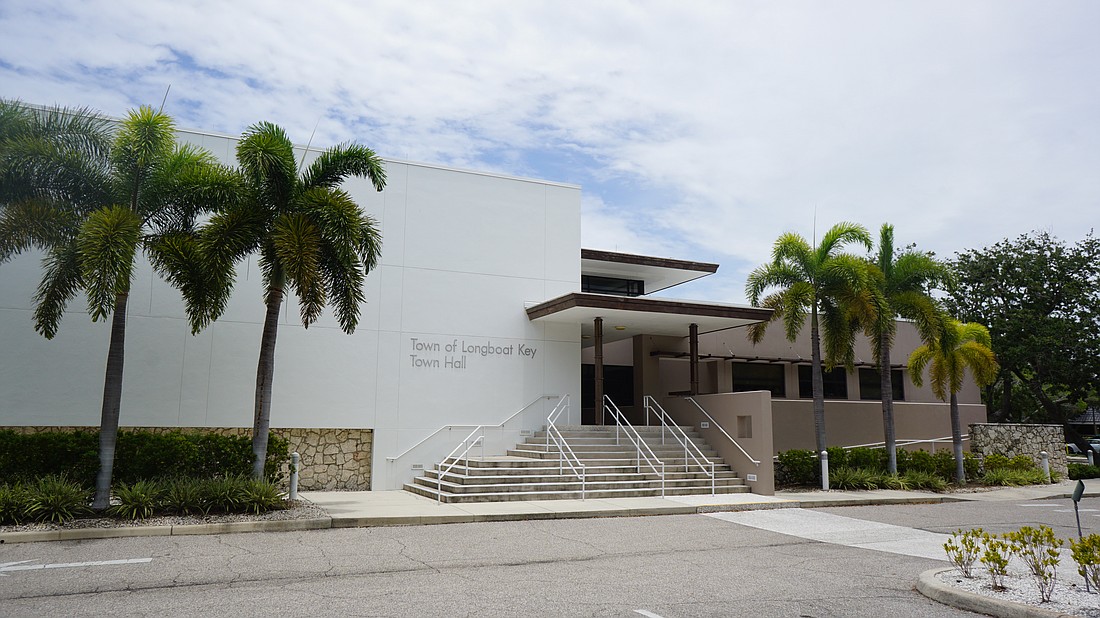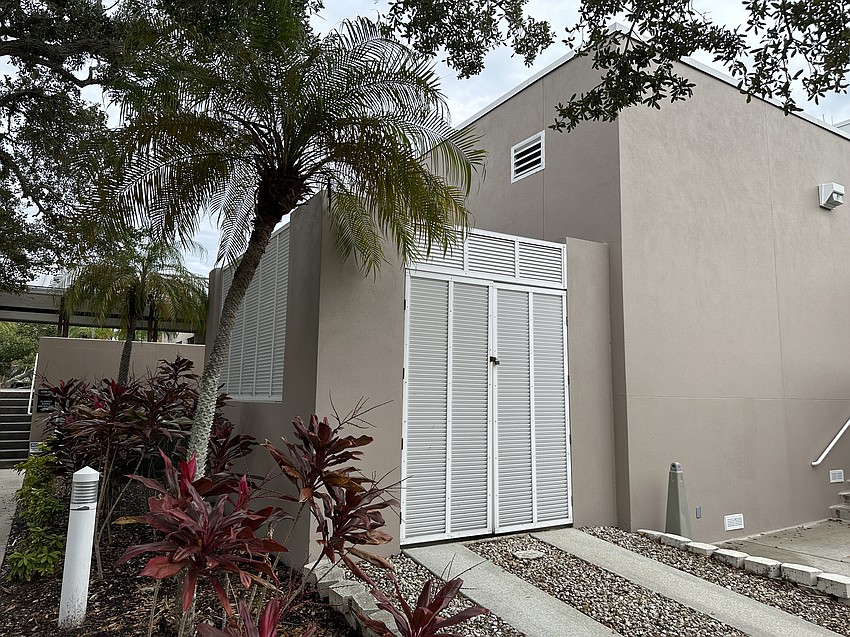- July 26, 2024
-
-
Loading

Loading
 Photo by Carter Weinhofer
Photo by Carter Weinhofer
Longboat Key’s Town Hall building will finally receive storm resilience upgrades.
The Town Hall hardening project is estimated to cost $1.9 million and will include three main components: a new roof, new exterior-facing windows and a new generator for town hall.
After almost seven years of back and forth with the Federal Emergency Management Agency and cost increases, town commissioners approved an additional $250,000 from the town’s budget to be used on the project in order to get the project underway.
The costs rose dramatically since the early, rough estimates in 2017-2018 put the price tag at around $969,000.
These increases since then are largely due to inflation amid delays in the project, according to Public Works Director Isaac Brownman.
Having been built in the early 2000s, the building’s roof and windows are currently only rated to withstand winds of 110 mph, Brownman said.
With this project, both the roof and windows will be upgraded to withstand 150 mph winds, which is in the range of Category 4 hurricanes.

Town Hall's current backup generator can only power the Information Technology Department and maybe a little more of the building.
“It’s very small and only for critical elements,” Brownman said. “We need a generator that will power the whole building.”
The new, upgraded generator will be able to do that, as well as the Planning, Zoning and Building Department.
That being said, the generator is also substantially larger in size. Brownman said part of the costs for that component includes building a new housing structure for the generator, as well as electrical upgrades.
As a whole, the project will allow for town staff to operate out of Town Hall sooner during or after a major storm event like a hurricane. It will also help protect the building in those events.
The project dates back to 2017-2018, when the town was pursuing a Hazard Mitigation Grant through FEMA in response to Hurricane Irma. At the time, FEMA awarded the town around $700,000.
Afterward, it took a long time to get agreements in place before soliciting bids after the start of the COVID-19 pandemic, Brownman said. That attempt at finding a bid failed.
The town then decided to retry the bid process in November 2022 and received one. But the bid came in substantially higher than the FEMA grant award, at around $1.6 million. Brownman said he had those numbers checked at the time, and the estimate was sound.
The contractor is Jon F. Swift Construction, a company known on Longboat Key for its work on Bayfront Park and the Karon Family Pavilion.
Following that bid, the town went back to FEMA to request an extension on the project timeline and more money. It took around 10 months for a response, in which FEMA granted more money and time, to the amount of about $1.2 million.
But by the time Brownman and his staff revisited the bid process in November 2023, costs had risen again.
The biggest increase was the cost of the windows, which increased 25%. Roof costs increased by 4% and the generator costs increased by 11%.
“We know that we can’t wait another 8-10 months for FEMA to approve another increase,” Brownman said. “We really need to lock in this project and get it going.”
With the granted time extension, the town only has 13 months to use the FEMA grant money. The deadline is February 2025.
“And that’s not a lot of time to get this project done,” Town Manager Howard Tipton said. “Asking for another extension, in my opinion, is not a wise thing to combine with that money ask.”
That’s why Brownman approached the Town Commission at its Jan. 8 regular meeting to request an additional $250,000 for the project.
The $250,000 is drawn from the town’s capital reserve fund, which currently sits at $750,000 before this move. The fund is there for reasons exactly like this, Tipton said.
Once the project gets underway, then the town can pursue FEMA for a reimbursement for some or all of the $250,000 back.
The project’s current price tag is set at $1.9 million, which includes a $100,000 construction contingency suggested by Brownman, speaking to past experiences with contractors working on occupied buildings.
Sometimes, unexpected things come up when working on a building.
“It’s a different animal to work in an operating, occupied building. And when you start pulling stuff apart and you find something, you don’t want to go back to another budget amendment process to deal with it,” Brownman said.
Town commissioners approved the $250,000 fund move unanimously. Now that the funds are in place, Brownman can start getting the project under contact.
Even so, he said it’ll take the contractor until around September to get the materials necessary due to long lead times.
During construction, Brownman said the crew will work with Town Hall staff to schedule some workers to potentially work remotely while windows near offices are being worked on. Brownman also ensured the construction crew would be aware of the commission meeting schedule.